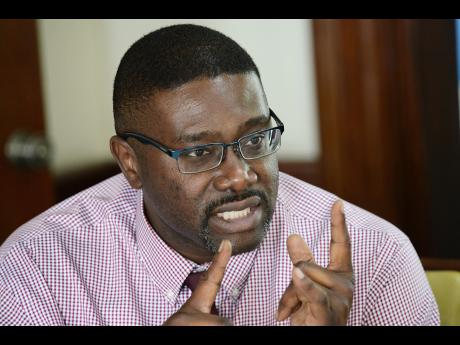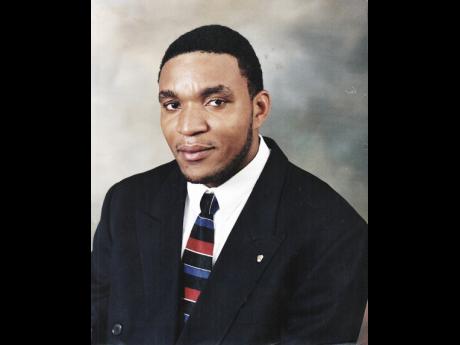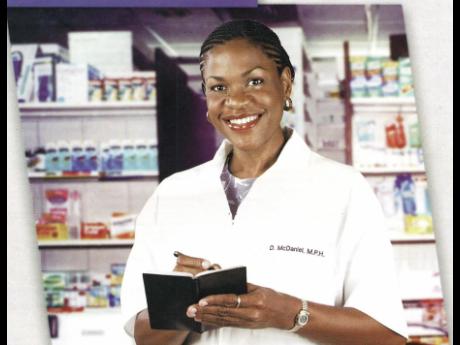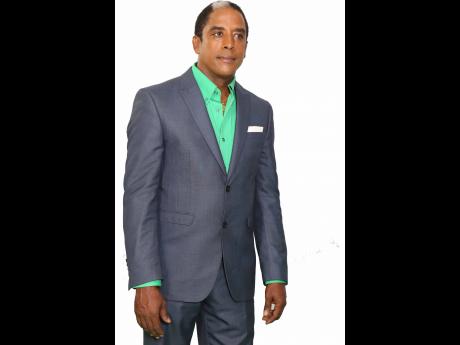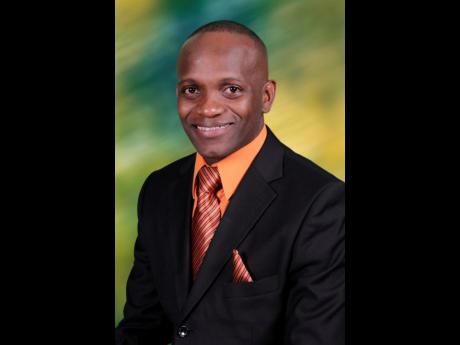Medical mess-up! - Careless doctors aiding prescription fraud
Prescription fraud is becoming a serious problem in Jamaica, and doctors who flout the law by not ensuring their names and registration numbers are clearly visible on all prescriptions are a major part of the problem.
"The major problem is that the doctors do not usually print their names legibly, they don't write it in block letters, there is no stamp on it; all you see is this big fat signature which is some kind of status symbol," pharmacist and pharmacy owner, Dr Dahlia McDaniel Dickson, told The Sunday Gleaner.
"It also means that the person writing a fraudulent prescription can capitalise on that and write anything. This leaves a certain loophole there."
The Pharmacy Act Regulations states that every prescription for a drug shall include: "the date, name, age and address of the person for whom the prescription is issued; the name, the generic name, and the quantity of the substance to be supplied; adequate directions for the use of the substance prescribed; the usual signature of the prescriber and his name in legible print form; the address, telephone number and registration number of the prescriber".
Rohan McNellie, first vice-president of the Jamaica Association of Private Pharmacy Owners, said the failure by doctors to adhere to the law and write their names clearly can make it easier for persons desperate to get their hands on certain drugs, whether for resale or due to addiction.
PRESCRIPTION FRAUD
"From where we sit as pharmacists, we do see prescription fraud. It is normally seen with addictive drugs such as antipsychotics - persons will do anything to get them," said McNellie.
"A man can sit and practise how to forge a signature and get a prescription pad, he can even make one on the computer and print it off and just write what he wants."
According to McNellie, what some insurance companies have done is to update their databases so that once the doctor's name and registration number are missing the prescription cannot be filled.
"This is done to reduce fraud, because prescription fraud is a big thing," McNellie said.
Major health insurance provider, Sagicor, contends that the pharmacist should also be insisting that the prescriber's name and registration number are present, as this is required by law.
"A prescribing physician is required, by law, to use his or her prescriber registration number on the prescription as well as his or her name. We cannot process a claim for prescription drugs or medication without the name of the prescribing physician," said Sagicor, in response to questions from our news team.
PATIENTS SUFFER
Added Sagicor, "If the prescriber is unable to be identified either by name or by number, the pharmacist is unable to submit the claim to the insurance companies. Not only do insurance companies need this information, but the pharmacist also needs to know that a properly qualified and registered doctor is writing the prescription."
But McDaniel Dickson argued that when she refuses to fill certain prescriptions, her business and the patients suffer, so it would make everyone's life easier if the doctors would stamp the prescriptions.
"I am in the business of protecting the public's health so I'm not going to try to sell them at whatever cost. However, the patient will leave and go to another pharmacy who will use their discretion and just fill it without seeing who the doctor is, and this is the reality," said McDaniel Dickson. "We don't want that to happen, so for us to see your names and registration numbers, just stamp it."
For Medical Association of Jamaica president, Dr Myrton Smith, some doctors have developed the habit of not writing their names and, therefore, greater reinforcement might be needed, but he does not deem the use of stamps to be the cure.
"I don't think the stamp is the solution; that's a bad idea," said Smith.
"Stamps go missing, people steal stamps, and you can walk into any company and tell them you want a stamp; you don't have to show them any qualifications for them to make a stamp. Writing is a much better idea, because that is much harder to forge."
Ainsley Jones, Pharmaceutical Society of Jamaica president, is encouraging his members to ensure that doctors stick to the letter of the law, as failure to do so could have far-reaching effect.
"You may be giving the patient something that he or she should not be getting ... the pharmacist's licence can be at risk and the doctor as well may be at some risk, as they have a reputation to protect and their name could be on a lawsuit, and the reputation of the pharmacy society could also be at risk," Jones reasoned.
"And it can lend itself to fraud, because we have anecdotal evidence and have been sent prescriptions that are believed to be fraudulent prescriptions."
Pharmacy Council chairman, Dr Norman Dunn, said the issue of doctors not writing their names clearly is a long-standing one, which has been discussed with the Medical Council of Jamaica. He believes a fully electronic system could be the answer.
"One thing we are moving towards is electronic prescriptions and, that I think, that will reduce the incident of fraud and or inability in some cases to identify who the physician is," Dunn said.


